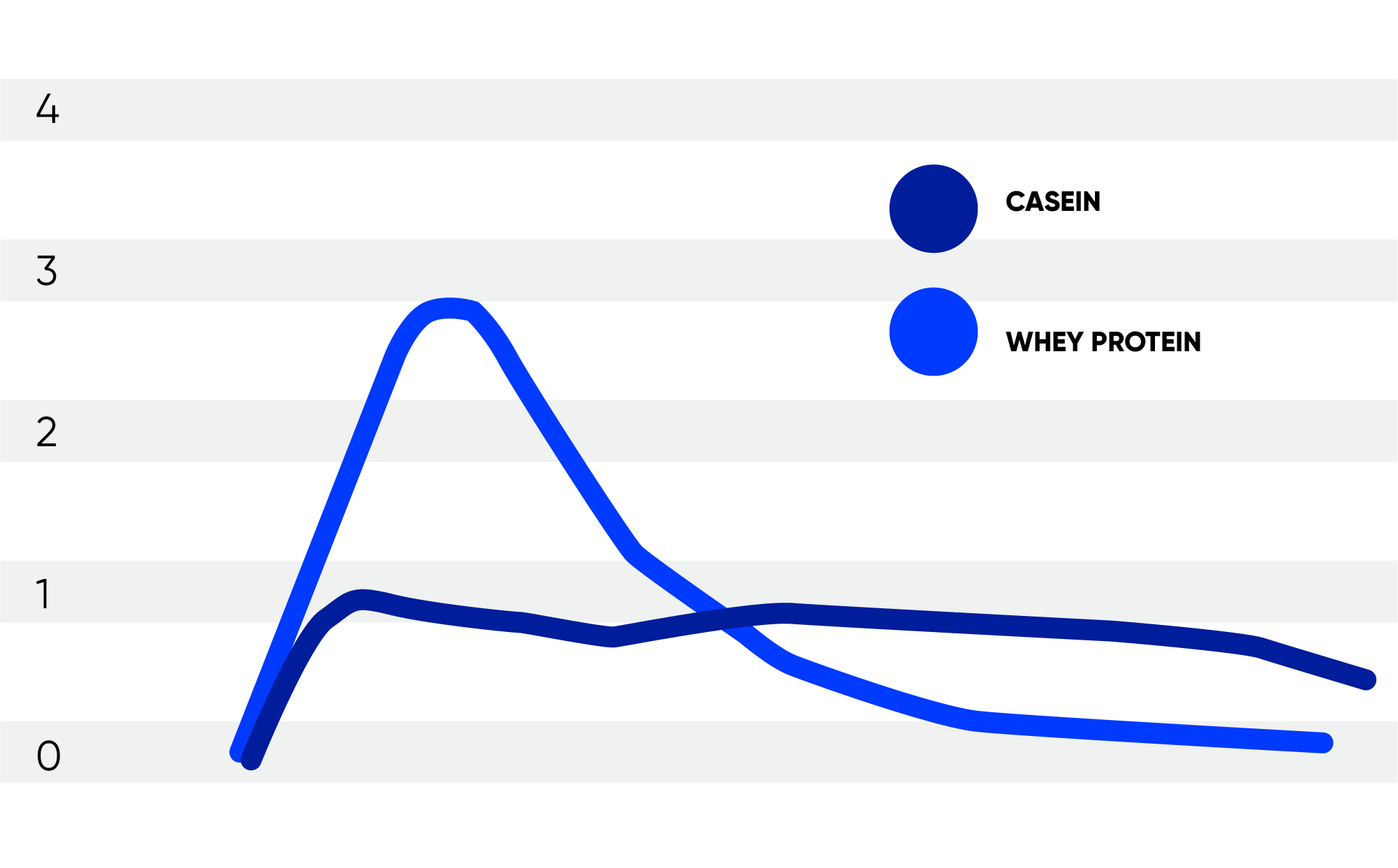The Proteins in Milk
06-09-2023
AUTHOR: LINDSEY ORMOND

Milk contains two main types of proteins – casein and whey. Casein accounts for 80% of the protein in milk, while whey contributes around 20%.

Whey protein is renowned for being a staple in the diet of bodybuilders, which is no surprise given its ability to promote muscle growth and maintenance. However, it is now becoming a key part of mainstreams diets as well, given the unrivaled benefits of high-quality whey proteins.
Whey protein contains all the essential amino acids the human body needs in a form that is rapidly and easily absorbed by the body. Whey protein is particularly high in the branched-chain amino acids (BCAAs), especially leucine. This unique BCAA has been shown to trigger muscle protein synthesis, the process by which the body builds and generates new muscle fibers, which is key for everyone of all ages – not just those wanting to get bigger muscles.
The benefits of whey protein go beyond its ability to support muscle tissue; it has been shown to increase satiety, support weight management,manage blood glucose – both in healthy and pre-diabetic subjects – and even help endurance athletes run faster.
Casein, the main protein in milk protein concentrates and isolates, is also a great source of essential amino acids but is absorbed more slowly by the body (graph source: Boirie, Y, et al. Proc Natl Acad Sci USA 1997). This has the benefit of supplying the body with essential amino acids over a longer period and is why casein or milk protein is often found in overnight recovery products.

HIGH QUALITY PROTEINS IN THE PRODUCTS YOU LOVE
Dairy proteins have long been used in many different applications as they have a long shelf life, can be easily incorporated into products and have a neutral taste. The diversity of applications these proteins can be incorporated into is in part due to the range of ingredients available, many of which have been developed for specific products to meet consumer preferences.

IN CONCLUSION
Dairy proteins provide unparalleled nutritional benefits to help consumers reach their sports performance, weight management, lifestyle, and healthy aging goals. The demand for protein-rich foods and supplements continue to skyrocket, as consumers recognize the benefits of incorporating them into their diet through a variety of applications. Not all proteins are created equal, but for consumers looking for the best source of complete amino acid profiles, dairy proteins are unmatched for nutrition and versatility. Embrace the power of dairy!